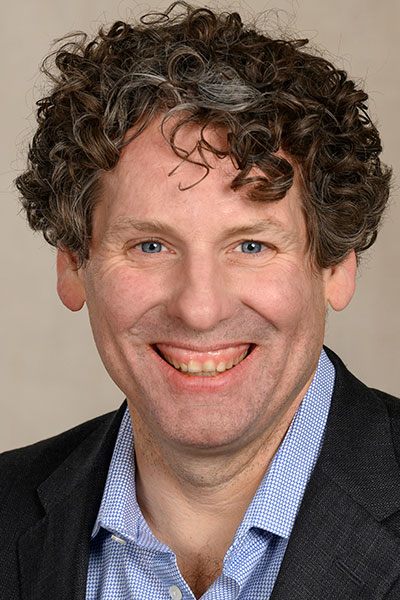Heterogeneity in trial populations is a prevalent challenge in critical care research, prompting a significant effort to identify how to effectively subtype or endotype patients with common critical care syndromes with the goal of individualizing treatment protocols to improve outcomes.

“Clinical care trials have largely been negative, which is to say, the trial interventions have largely not panned out,” said Charles Corey Hardin, MD, PhD, ATSF, associate professor of medicine, Massachusetts General Hospital. “One of the likely contributors is that canonical critical care syndromes like septic shock and acute respiratory distress syndrome are clinically defined. They are not molecularly defined or defined by abnormalities in identified biological pathways. So, it’s quite likely that patients with ARDS, for example, will have different treatment responses based on the particular type of ARDS they have.”
On Wednesday, May 24, at the ATS 2023 International Conference, Dr. Hardin will co-chair From Genes to Clinical Trials: State-of-the-Art Approaches to Heterogeneity in the ICU with Pratik Sinha, MBBCh, PhD, Washington University, and Tiffanie K. Jones, MD, MPH, MSCE, University of Pennsylvania. The session will take place from noon–1:30 p.m. ET in the Independence Ballroom Salons A-D (Level M4) of the Marriott Marquis Washington.
Drs. Hardin, Sinha, and Jones will join three other experts to explore novel and established techniques for phenotyping critically ill patients with the goal of helping researchers assemble cohorts of trial participants who have similar biology and are likely to experience similar treatment effects, thereby increasing the precision of clinical trials.
“It’s very much an open question as to what are the prevalent subtypes of critical care syndromes like ARDS and septic shock, and what is the best way to identify them,” Dr. Hardin said. “This is a state-of-the-art session looking at ways people have proposed to accomplish that goal. It’s early days as far as what’s going to pan out as the most important or productive way of doing that.”
Featured presentations include:
- Untangling Complexity in Critical Illness, Charles Corey Hardin, MD, PhD, ATSF, Massachusetts General
- It’s Written in the Genes: Understanding the Susceptibilities to Critical Illness, Tiffanie K. Jones, MD, MPH, MSCE, University of Pennsylvania
- Polygenic Risk Scores in Critical Care: A Tale of Two Post-Operative Complications, Lisa Bastarache, MS, Vanderbilt University
- Phenotypes in ICU Acquired Weakness, Claudia C. dos Santos, MD, University of Toronto, Canada
- Phenotypes Over Clinical Syndromes: A More Logical Lumping Paradigm, Pratik Sinha, MBBCh, PhD, Washington University
- Clinical Trials and Treatment Effects: Don’t be Average, Be an Individual, Matthew Michael Churpek, MD, MPH, PhD, ATSF, University of Wisconsin-Madison
The session is designed for investigators studying ARDS and septic shock, as well as clinical practitioners in the intensive care unit treating patients with these syndromes.
“Because of really knotty issues with respect to heterogeneity, interpreting the critical care literature is challenging,” Dr. Hardin said. “Having a sophisticated understanding of the challenges of heterogeneity of treatment effect is critical to reading the papers on the large clinical trials that come out in the big journals, understanding why there has been a succession of negative critical care trials, and understanding what we can learn from that, even in cases where the overall trial is negative.”
Don’t Miss ATS 2024 Highlights: On Demand
Don’t forget that ATS 2024 Highlights: On Demand are available to all conference registrants! On Demand will give you access to the Opening Ceremony, Plenary Session, Keynote Series, Clinical Year in Review, Adult Clinical Core Curriculum, and so much more. The topics will cover ILD, asthma, health equity, and CF, to name just a few. On Demand content will be accessible to all ATS 2024 full conference and On Demand registrants until March 2025.
